Ilkeston - Sing-along-a-Christmas
w/e 24 December 2006
All this week's pictures were taken
with a Kodak DX6490
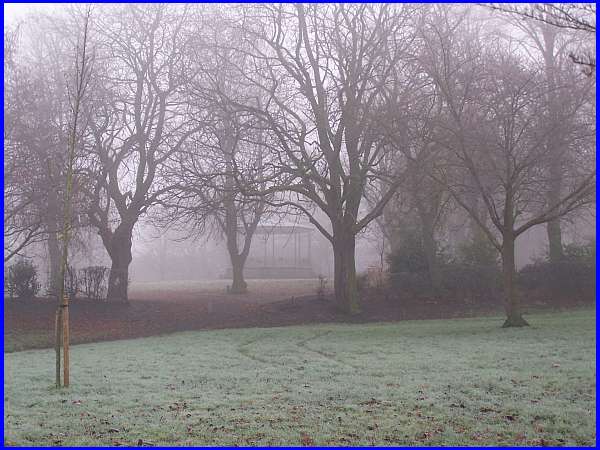
In the bleak midwinter, frosty wind made moan, earth stood
hard as iron, water like a stone;
Snow had fallen, snow on snow, snow on snow, in the bleak midwinter,
long ago.
Christina Rossetti's words may not be totally reflected in this
image as there was no snow but it was certainly frosty and more
than a little bleak in Victoria Park. Christina (1830-1894) an
English poet of Italian parents wrote the words as a Christmas
poem for a magazine and although she had several volumes of her
work published in the latter half of the nineteenth century,
"In the Bleak Midwinter", set to the music of Gustav
Theodore Holst is surely the most well-known. Holst's family
were of Swedish origin but came to England via Germany and he
was born in Cheltenham in 1874. Famous for his "Planets
Suite", he died in 1934 and his ashes were buried in Chichester
Cathedral.
|
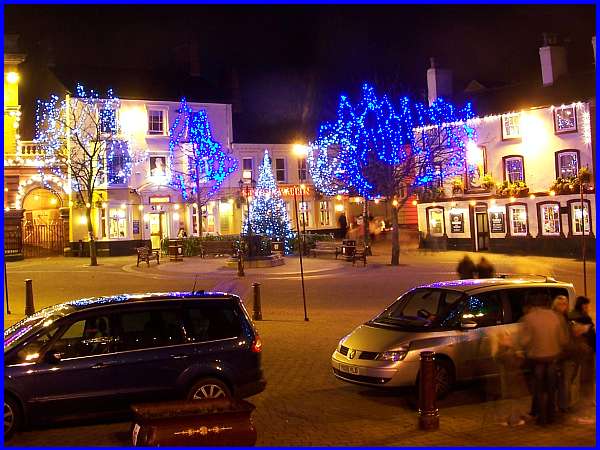
O Christmas tree, O Christmas tree, much pleasure doth thou
bring me!
For every year the Christmas tree, brings to us all both joy
and glee.
"O Christmas Tree" is a traditional German carol ("O
Tannenbaum") by an unknown lyricist but it was in Germany
in the nineteenth century that the tradition of bringing a tree
inside at Christmas and decorating it was started. Prince Albert
is credited with bringing the custom to these shores after setting
up a tree in Windsor Castle in 1841. Two Christmas trees have
been erected in Ilkeston's Market Place, the smaller one being
situated between the Sir John Warren and the Moon and Sixpence
public houses. Both pubs will see plenty of custom over the festive
period and this corner of the Market Place will be the scene
of much "joy and glee". I suppose if there are too
many people trying to get into the pubs, it will be another case
of "No room at the Inn".
|
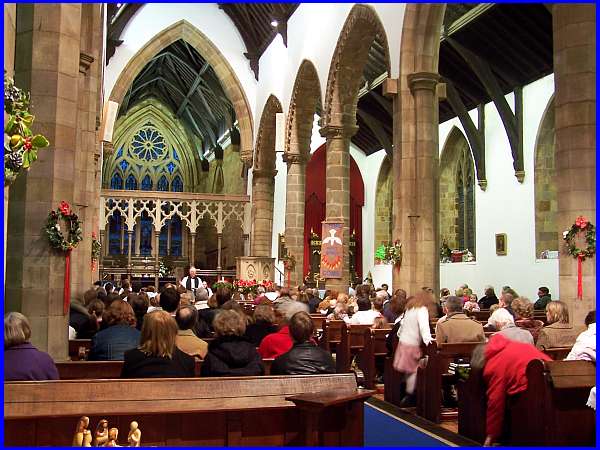
O come all ye faithful joyful and triumphant, O come ye, O
come ye to Bethlehem.
Come and behold Him, born the King of Angels; O come, let us
adore Him,
O come, let us adore Him, O come, let us adore Him, Christ the
Lord
Originally written as a hymn in Latin ("Adeste Fideles")
the music to "O Come All Ye Faithful" was composed
in the early 1700s and was first published in 1751. The familiar
English translation didn't come until 1841 but both words and
music have stood the test of time and are sung all over the world
at Christmas. The image shows the congregation in St Mary's at
this year's Christingle service - one of many services held here
in December.
|
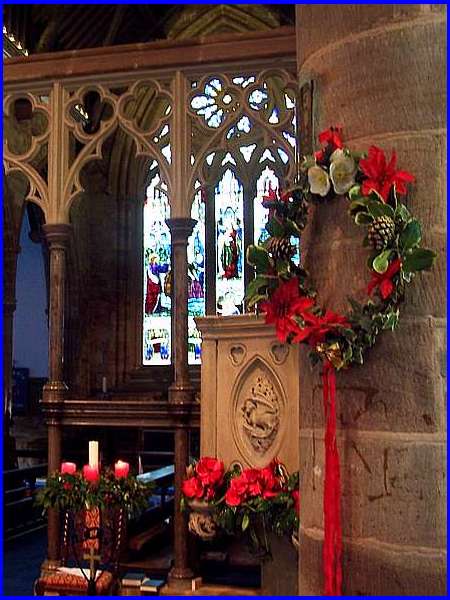
Deck the halls with boughs of holly, Fa la la la la, la la
la la.
Tis the season to be jolly, Fa la la la la, la la la la.
Also in St Mary's Church to celebrate the birth of Jesus there
are many decorations including several "boughs of holly"
on the ancient stone columns. The music to this festive tune
is not quite so ancient but is believed to be Welsh in origin
dating back to the sixteenth century. Mozart used the tune in
the eighteenth century for a violin and piano duet and "Deck
the Halls" was first published in 1881. Although the author
is unknown it is thought that the words originated in American.
|
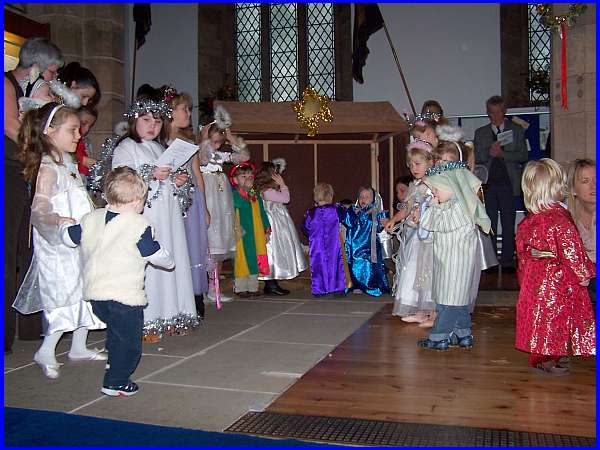
Away in a manger, no crib for His bed the little Lord Jesus
laid down His sweet head.
The stars in the bright sky looked down where He lay, the little
Lord Jesus Asleep on the hay.
"Away in a manager" is another carol from the nineteenth
century that is still popular today especially with children
when performing their Nativity plays. It was first published
in 1885 in a Lutheran Sunday School book and although the lyricist
is unknown, the music was composed by William J. Kirkpatrick
in 1895. Whoever wrote the words I'm sure those in the verse
"Bless all the dear children in Thy tender care, and take
us to heaven to live with Thee there" were meant to apply
to God's children of all ages.
|
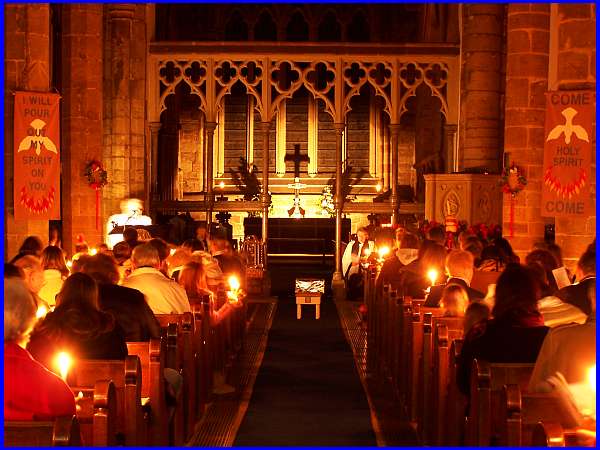
Silent night, holy night Son of God, love's pure light
Radiant beams from Thy holy face, with the dawn of redeeming
grace
Jesus, Lord, at Thy birth Jesus, Lord, at Thy birth.
I chose the words from probably the best loved and most famous
of all Christmas carols "Silent Night" to accompany
the above image, captured as the church lights were dimmed at
St Mary's Christingle Service. Written by Austrian priest Joseph
Mohr in 1816 and set to music by his friend Franz Gruber it was
first performed on Christmas Eve in 1818 in the small alpine
village of Oberndorf. As the church organ was broken it was sung
to the accompaniment of guitars. Since then it has been performed
by all manner of instruments but the simple tune is still the
favourite of all the Christmas carols with many people. I thought
the words "love's pure light" and "radiant beams"
were appropriate to the candlelit image but the final verse of
the hymn being sung at the time, "The Christingle Hymn"
would have been just as fitting if less well-known:
To complete the Christingle: a candle, telling us of the world's
true light.
For the darkness shall not overcome it, Jesus shines in the darkest
night.
|

